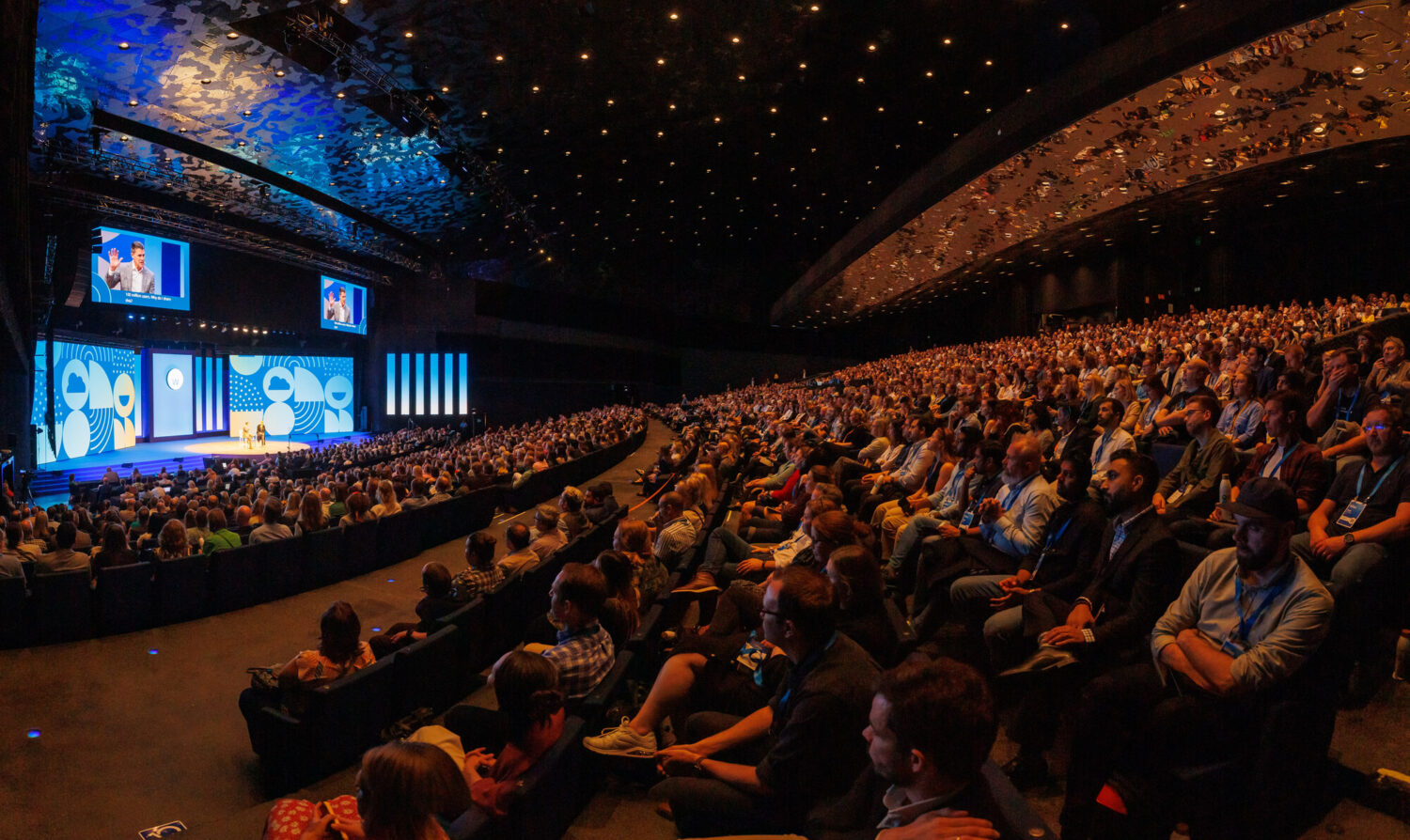Workday Rising 2023: You guessed it, AI takes the top spot
Beyond the AI hype? Discover how Workday's latest breakthroughs are transforming the CFO landscape, not just adding to the noise
Beyond the AI hype? Discover how Workday's latest breakthroughs are transforming the CFO landscape, not just adding to the noise

On November 30, 2022, Open AI released ChatGPT. The early release chatbot quickly went viral, and the rest is history.
Throughout the course of the year, the volume of articles stating the impact of generative AI on businesses has ballooned, and it is not firmly on every conference agenda.
It was no surprise then that Workday Rising awarded AI the top spot within it’s keynote speech on November 15, 2023.
Celebrating its 8th conference in the EMEA region, Workday’s senior executives outlined a future where artificial intelligence is no longer a ‘what if’ concept but a vital partner in business.
Angelique De Vries, president of EMEA at Workday; Carl Eschenbach, co-CEO of Workday; and Tomas Chamorro-Premuzic, chief innovation officer at ManpowerGroup, offered a narrative which alluded to how businesses should take a human-centric approach to leveraging technology and AI.
In an on stage Q&A, De Vries and Eschenbach explored the synergy between AI and human effort in the workplace.
Reflecting on Workday’s journey, now catering to 65 million users under contract, they depicted AI as a catalyst for enhancing human capability, reshaping tasks within jobs rather than replacing them.
For CFOs, this paradigm shift is a clarion call to embed AI into their strategic arsenal, leveraging its potential to redefine productivity and decision-making.
Data security and trust
In an era where data equates to digital gold, Eschenbach’s emphasis on trust and data security echoed profoundly. Today, a CFO’s role transcends traditional financial management, venturing into the realm of data guardianship.
“More than 10,000 organisations around the world rely on Workday to manage their most valuable assets – their people and their money,” said Eschenbach.
“They trust Workday to provide powerful, responsible, transparent solutions that will propel their businesses forward. Today, we’re reinforcing that trust by sharing cutting-edge solutions that will completely transform the way our customers do business. With the power of AI and ML and an ecosystem of industry-leading partners, we are writing the playbook for the way the future works.”
Eschenbach’s narrative on harnessing technology for business growth underscored a pivotal role for CFOs – leading technological innovation for organizational advancement.
With AI’s growing prominence, especially marked by the rapid adoption of tools like ChatGPT, which amassed a vast user base in a remarkably short time, CFOs are encouraged to pioneer tech-driven strategies for competitive edge and efficiency.
As announced in a press release earlier this year, Workday is introducing multiple new generative AI capabilities designed to optimise business processes and elevate human performance. These capabilities, spanning from finance and HR to individual users, are set to transform the way organizations approach everyday tasks and strategic planning.
The introduction of conversational AI capabilities in Workday Adaptive Planning is particularly noteworthy. This feature will enable users to quickly surface data, uncover relevant insights, and receive recommended actions through a natural, conversational interface.
For CFOs, this development promises a more streamlined and intuitive approach to financial analysis and decision-making, aligning with the evolving needs of dynamic business environments.
Workday’s commitment to fostering better alignment between finance and human resources was further emphasized with the announcement of a new user interface for Workday Human Capital Management (HCM) and Workday Adaptive Planning.
This interface is designed to streamline bottom-up workforce planning, allowing for updates and creation of new positions within Workday HCM that automatically reflect in financial and aggregated headcount plans.
For CFOs, this signifies an era of more connected and collaborative planning experiences, where financial implications of HR decisions are more transparent and aligned with overall business strategy.
The generative AI capabilities will also transform how organizations handle service procurement. Automating the creation of Statements of Work (SOWs) not only saves time but also ensures that critical clauses are included based on specific project needs.
The keynote also shed light on how these innovations are impacting companies like Nationwide Insurance and Shutterstock.
Earlier this year, Kenneth Ruch from Nationwide Insurance highlighted how Workday Adaptive Planning is transforming their journey from traditional headcount planning to a strategic workforce planning process. Similarly, James Choi of Shutterstock noted the significant time savings and increased agility achieved through integrating Workday’s solutions.
Chamorro-Premuzic’s forward-looking insights, especially on ethical AI, should set a strategic course for CFOs.
His emphasis on responsible AI adoption aligns with a CFO’s duty to balance technological advancement with ethical considerations, ensuring responsible growth and innovation.
While Workday Rising’s opening to the conference was perhaps not as unique as one might have hoped – AI is now, quite frankly, old news – it was refreshing to see senior officials acknowledge the nervousness most businesses feel about integrating AI within their businesses.
True, the Workday officials painted a future where AI and human innovation converge but there was an emphasis on ethical responsibility and technological partnership.